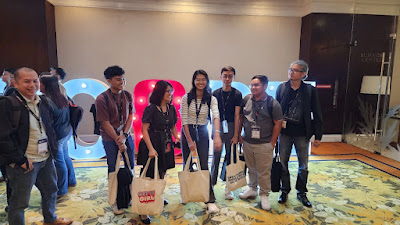26 January 2016
Today I attended most of the sessions from the Cloud Working Group.
Talk: More than
Three Years of OpenStack Clouds at NCI
Speaker: Andrew
Howard, NCI High Performance, andrew.howard@anu.edu (via Skype)
In this talk, Andrew talked about the history of their OpenStack deployments at NCI. It is surprising to know that they have deployments using different versions. At this point in time, they are experimenting with using Ceph for storage. One person from the audience asked how they keep up with the rapid release of newer versions of OpenStack in order to keep updated. They use fibre channel for connectivity.
Talk:
Application-Centric Overlay Cloud Utilizing Inter-Cloud
Speaker:
Shigetoshi Yokohama
This is a short talk about the use of cloud in big data analysis. The middleware group where the speaker is a member of, focuses on automatic and quick creation of virtual clouds. Other groups are working on aspects such as optimal resource selection and infrastructure.
Talk: SmartX
Playground Update
Speaker: JongWon
Kim, gwangju institute of technology
This talk is more of an update of the SmartX Playground which integrate the recent technologies such as SDN and IoT with clouds.
Talk: National
Computing Center Singapore
Speaker:
This talk describes some updates on the NCC in Singapore. It is located in the 7th floor. They use the term InfinCloud because they use Infiniband interconnect. Their facility is state of the art.
Talk: Kreonet
cloud update
Speaker: Yoonjoo
Kwon, Kisti
This talk is about some updates on the Kreonet, including COREEN and RealLab.
Talk: VM
Migration on SDNs
Speaker: Kashir
Nifan
This talk is about a VM migration mechanism implemented in Java.
Talk:
Collaboration with APAN WG
Speaker: Eric
Yen, Academia Sinica
In this talk Eric emphasized that collaboration must be made in order to encourage members of other working groups to utilize the infrastructure developed from the Cloud WG. He said that the requirements should drive the cloud facility.
In the afternoon, I attended sessions on Future Internet Testbeds. Testbeds are real/virtual networks where researchers can experiment with new ideas.
The day ended with a fellowship dinner with some presentations from local talents.

























